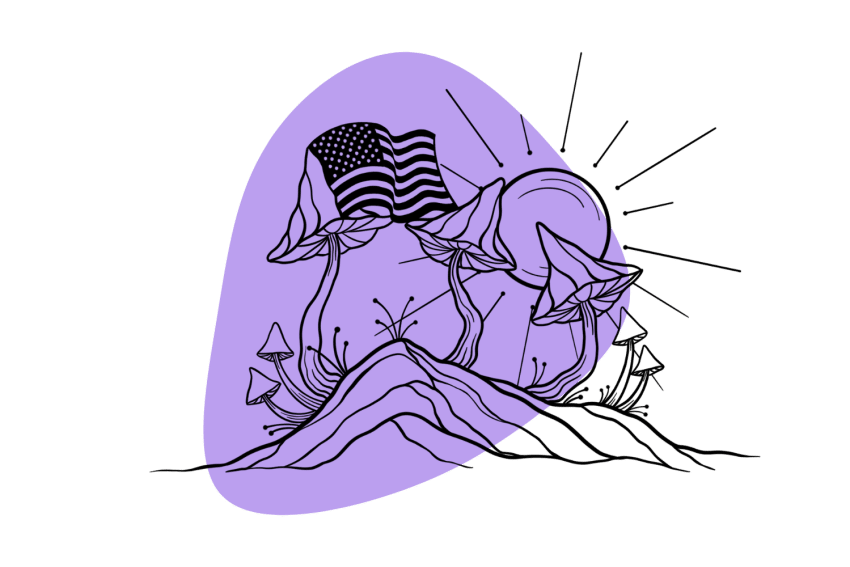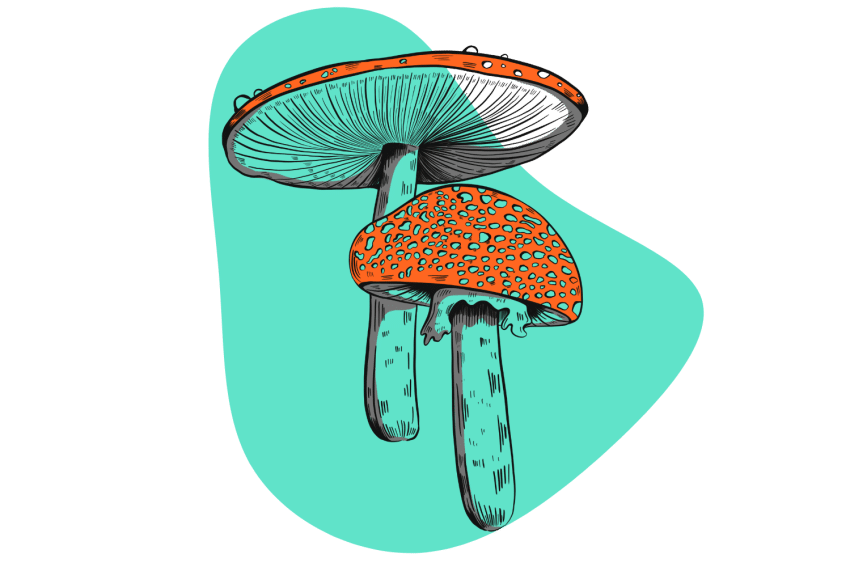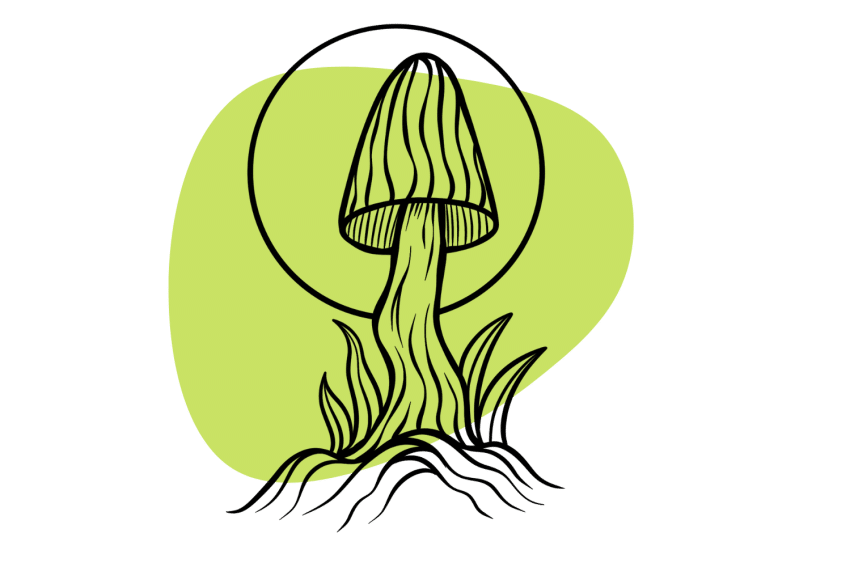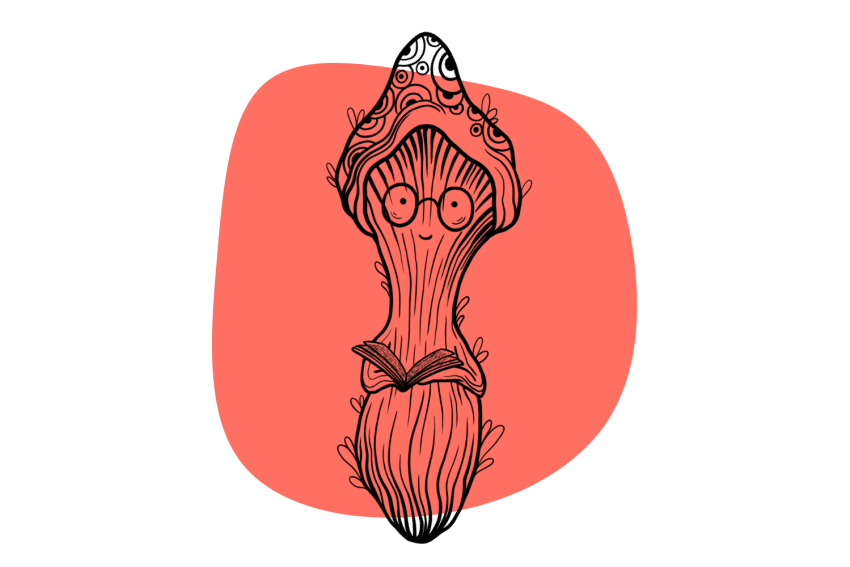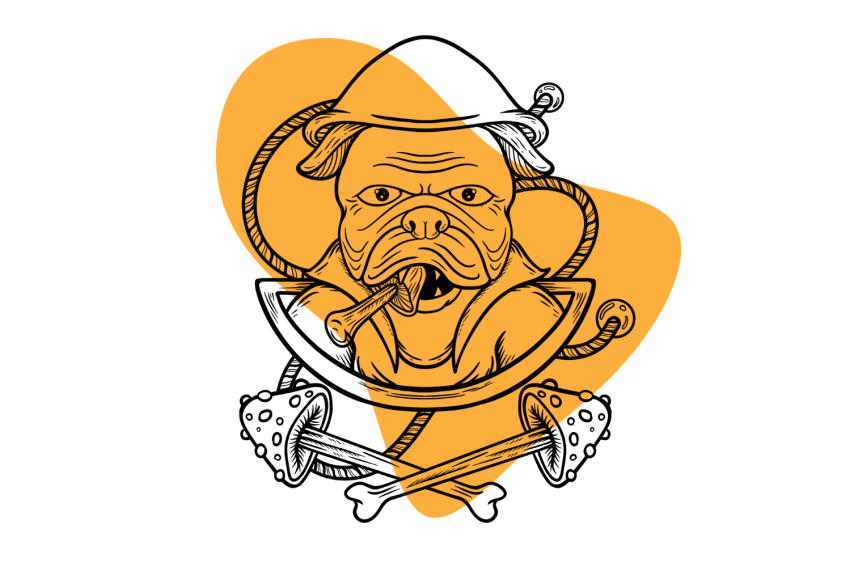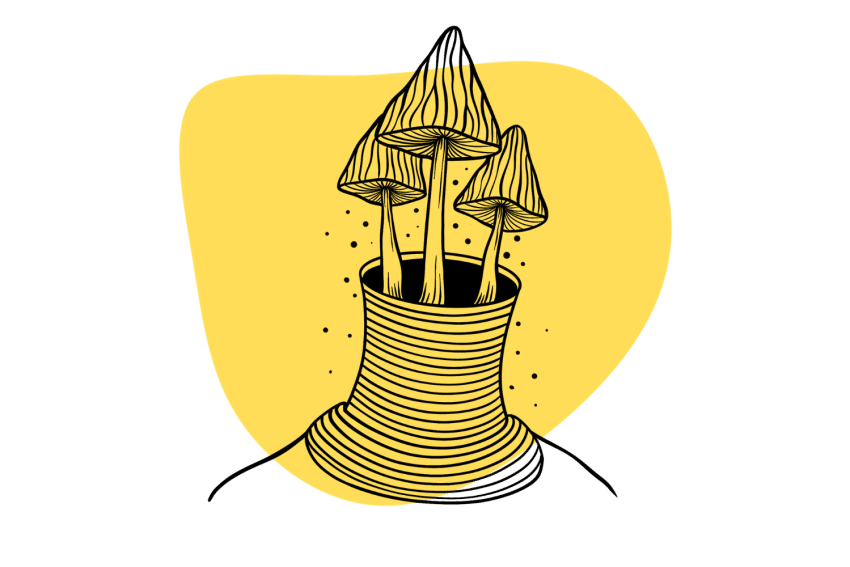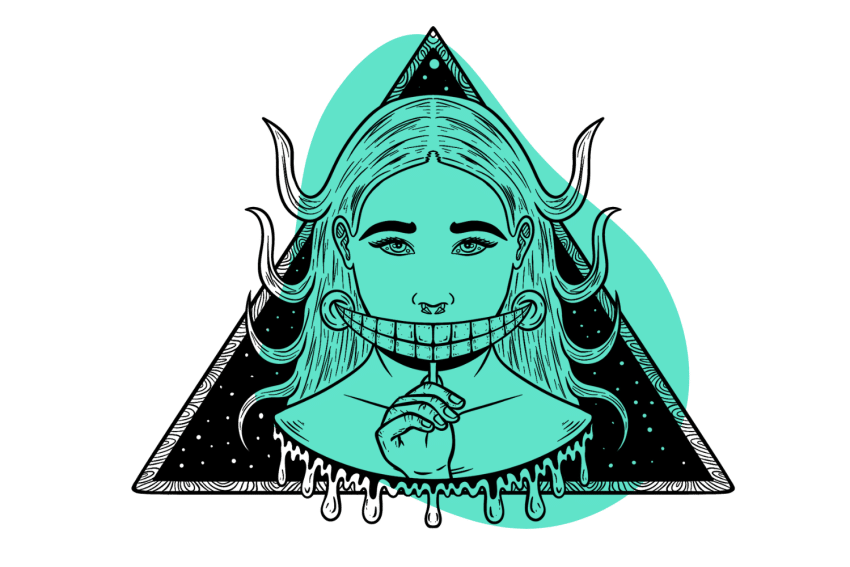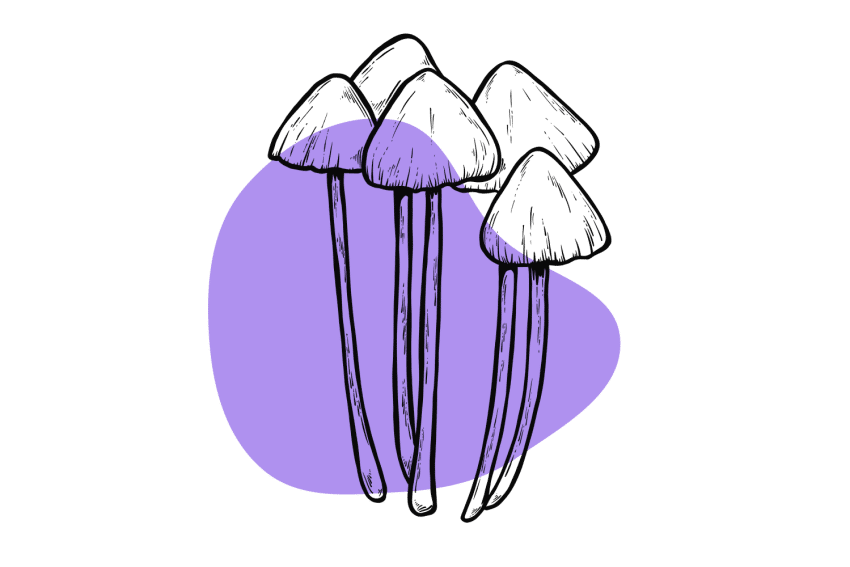Psychedelic Drug Laws in Quebec: Magic Mushrooms, LSD, & More
Quebec’s laws regarding English are almost more repressive than their laws on psychedelics.
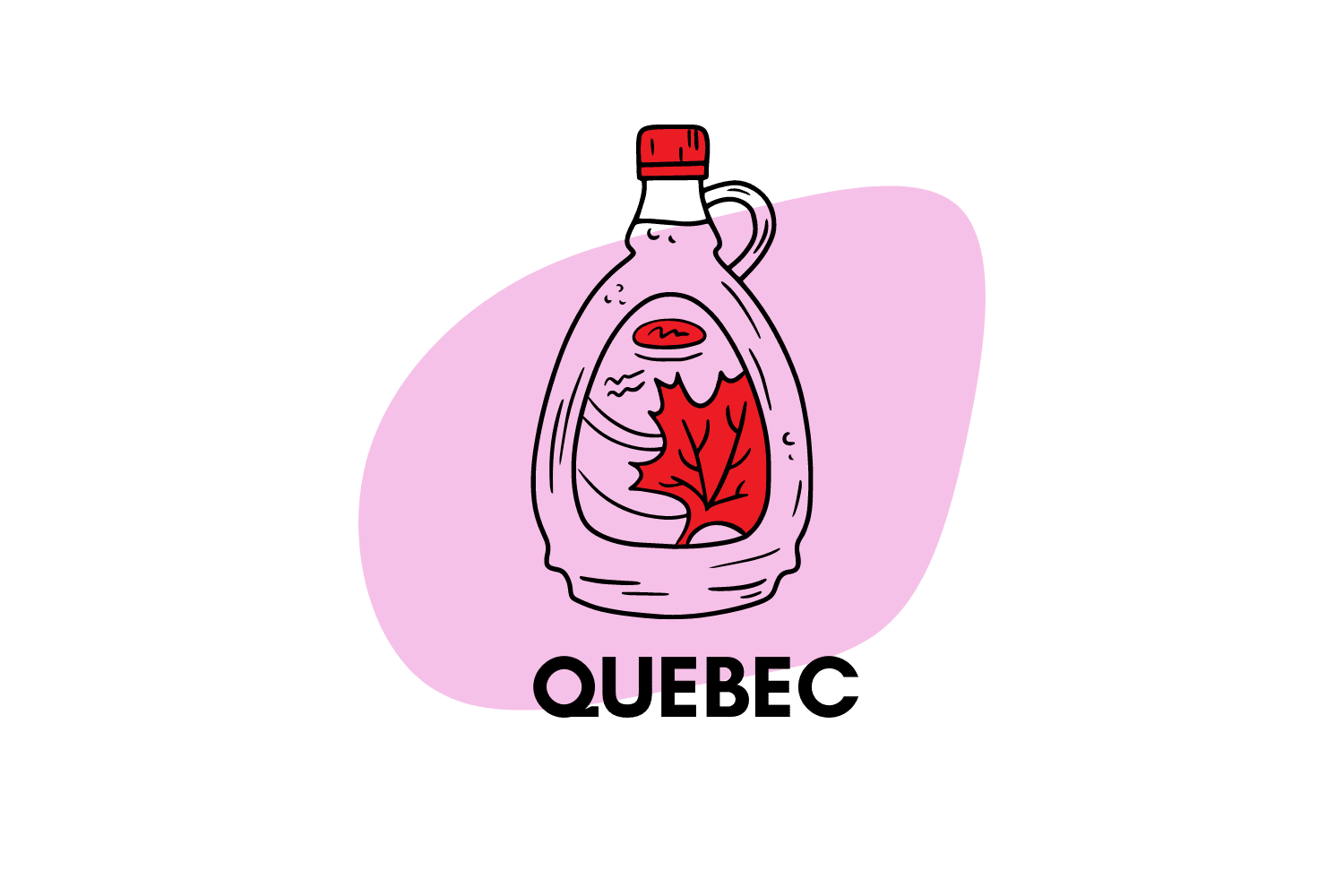
Psychedelics are currently classified as controlled substances in Quebec, which means they’re generally prohibited unless granted an exemption. Most psychedelics are categorized as Schedule 3 for their moderate to low potential to be physically or psychologically addictive.
Still, with the overwhelming evidence that many of these compounds offer medical value, the current legal regime in Canada is currently under review.
Below, we’ll cover various psychedelics’ legality and offer a prediction on how these laws are likely to change in the coming months or years.
Summary of Psychedelic Drug Laws in Quebec
- Psychedelics are generally prohibited in Quebec, but this may soon change
- Canada has taken a progressive stance on psychedelics
- MDMA is likely to be legalized for medical use soon
- There isn’t any pending legislation surrounding psychedelic substances in Quebec, but there are a few changes coming from the federal level.
Are Magic Mushrooms Legal in Quebec?
Since 1996, the production, sale, and possession of magic mushrooms have been technically illegal in Quebec unless authorized through a clinical trial or another form of exemption.
However, magic mushrooms are legal for medical use in Quebec and other Canadian provinces. It’s pretty rare to hear about anybody being prosecuted for possessing psilocybin in Canada in quantities below 15 grams.
Currently, the only place in Canada where magic mushrooms are officially decriminalized is Vancouver, BC (personal use only).
There are, however, some initiatives underway that could officially relax outdated psychedelic laws throughout Canada.
For example, the e-2535 petition to the house of commons, which seeks to decriminalize psychedelics with a history of use for religious or spiritual practices (called entheogens). This would include psilocybin-containing mushrooms as well as ayahuasca and other natural psychedelics.
Where to Buy Magic Mushroom Spores in Quebec
Magic mushroom spores are legal throughout Canada because they don’t contain any of the psychoactive components, psilocybin, and psilocin. As a result, there are plenty of places to buy magic mushroom spores to be delivered to Quebec.
With that said, the cultivation of magic mushrooms remains illegal.
Related: How to Grow Magic Mushrooms.
Do Magic Mushrooms Grow Wild in Quebec?
You can find wild species of magic mushrooms almost everywhere, including Quebec.
Species, including Psilocybe caerulipes, are found around rivers and hardwood forests in Quebec, Ontario, and the midwest US.
You may be able to find other Psilocybe species, as well as the closely related genus, Pannaeouls, in temperate forests, around ranches and pastures, or even in city parks in the province of Quebec.
What Are the Medicinal Uses of Shrooms?
Over the years, scientific studies have demonstrated a plethora of therapeutic benefits associated with psilocybin, psilocin, and magic mushrooms as a whole.
On top of supporting cognitive processes such as problem-solving and creativity, magic mushrooms have been shown to help with the following:
Depression
Psychedelics don’t cure depression by themselves but can be a valuable tool for psychotherapy. Moreover, effectively treating depression requires a fundamental shift in ontology rather than a simulated emotional experience through antidepressants.
Learn how magic mushrooms and other psychedelics are reshaping how we treat depression.
Post-Traumatic Stress Disorder (PTSD)
There’s evidence that the intentional use of psychedelics for therapeutic purposes can alleviate the long-term impact of trauma and PTSD.
For example, psilocybin-assisted therapy involves low doses of psilocybin paired with conventional psychotherapy interventions. The effect of these low doses allows for a loosening of conscious and unconscious defense mechanisms. This very loosening of the mind enables deeper introspection and easier trust-building between patient and therapist, enhancing the therapeutic process as a whole.
Existential Anxiety (End of Life Care)
Yet another common use for magic mushrooms is to help terminally-ill patients. They’re used as a way to combat existential anxiety that comes with a terminal diagnosis.
Psilocybin mimics serotonin, so an individual may be able to experience the world differently and alter their sometimes dreadful outlook on life and death.
This is supported by Johns Hopkins Medicine, as the shrooms help patients cope with their situation while finding meaning and comfort in the present. Most importantly, mushrooms can reduce confusion and fear about the future for end-of-life patients.
Cluster Headaches
Anecdotal reports suggest mushrooms can offer a new option for managing cluster headaches, which can prove tremendously debilitating and hard to treat. This condition often leads to job loss or missed opportunities.
Even though there is no solid scientific explanation of how psilocybin (and LSD) may help, studies show strong results towards its ability to combat cluster headaches.
Addiction
Psychedelics such as LSD and magic mushrooms have both been shown through large-scale clinical trials to help people recover from drug addiction.
A theory on how they achieve this is that psychedelics may deactivate cravings by activating the 5HT2A receptors, suppressing one of the large-scale brain networks called DMN (default mode network).
When someone suffers from depression or addiction, the DMN may become over-engaged with negative thoughts or cravings.
By suppressing this system, even just for a few hours, users can break free from the restrictive tendencies and patterns this system can create.
Is LSD Legal in Quebec?
LSD (lysergic acid diethylamide) is prohibited under Schedule III of Canada’s Controlled Drugs and Substances Act. In the 1960s, LSD use in Canada significantly increased, and, as a result, the Canadian government decided to criminalize the substance.
Still, Canadian laws are less strict than most other countries, which tend to classify LSD in the highest tier alongside addictive substances such as heroin, cocaine, and methamphetamine.
Some LSD analogs aren’t listed as restricted substances in Canada, including 1P-LSD, LSZ, and ALD-52.
Related: Why Is LSD Illegal? The Surprising Backstory
Is DMT Legal in Quebec?
DMT (dimethyltryptamine) is prohibited under Canadian federal law, though certain plants containing DMT are legal for sale. However, the Canadian government permits its use in the form of ayahuasca through Subsection 56 exemptions.
A way to legally use DMT in Quebec could be changa, a smokable form of ayahuasca, which gives its users the ability to ease into the DMT realm more slowly. None of the plants commonly contained in changa are considered illegal.
Some DMT analogs are also considered legal in Quebec and the rest of Canada. Some examples include 4-AcO-DMT and 5-Bromo-DMT.
Is MDMA Legal in Quebec?
MDMA, also known as ecstasy, is currently illegal in Quebec, and should the police catch you with this substance, you could face up to seven years of imprisonment.
However, some countries and states are moving to legalize the medicinal use of MDMA in therapy, though it won’t be legal for public use anytime soon.
Related: What is Psychedelic-Assisted Psychotherapy.
This substance belongs to Schedule I of the Canadian Controlled Drugs and Substances Act, which means it has been branded as a substance with a high potential for abuse.
However, MDMA is likely going to become legalized Canada-wide in the next couple of months for medical use.
Is Ketamine Legal in Quebec?
Yes, ketamine is legal in Quebec and Canada, though strictly for medical use.
There are numerous clinics already operating with this substance in virtually all major Canadian cities. It’s primarily used for treating depression and PTSD. It’s also used in surgery as a dissociative anesthetic.
However, its recreational use remains banned as a Schedule I controlled substance, bringing a penalty of up to seven years imprisonment.
Is Marijuana Legal in Quebec?
Marijuana is legal in Quebec for citizens 21 years old or older.
However, there are some regulations surrounding its use. For example, you cannot smoke or vape cannabis in any public place, whether indoor or outdoor. Also, you must store your cannabis safely and in a place where minors cannot access it.
Cannabis in Quebec became legal for recreational use when the national Cannabis Act went into force in October 2018. Furthermore, weed has been legal for medicinal purposes and seed, grain, and fiber production in Canada since 2001.
Delta 8 THC, being a cannabis derivative, is protected by the country’s laws and undoubtedly legal under Canadian federal law. This also applies to delta 9 THC and delta 10 THC.
What’s the Difference Between Legalization & Decriminalization?
Legalization and decriminalization are similar terms but two entirely different things. Decriminalization refers to significantly reducing penalties for a legal offense while legalizing removes all kinds of legal consequences.
Legalization often provides a legal environment for previously unlawful activity.
Psychedelic Laws in Other Canadian Provinces
Some provinces treat drug offenses differently than Quebec.
- Psychedelics in Alberta
- Psychedelics in British Columbia
- Psychedelics in New Brunswick
- Psychedelics in Newfoundland and Labrador
- Psychedelics in Northwest Territories
- Psychedelics in Nova Scotia
- Psychedelics in Nunavut
- Psychedelics in Manitoba
- Psychedelics in Ontario
- Psychedelics in Prince Edward Island
- Psychedelics in Saskatchewan
- Psychedelics in Yukon
Key Takeaways: What’s the Future of Psychedelics in Quebec?
Canadian laws are incredibly flexible compared to the rest of the world. Some regulators are even looking at case studies in Portugal, where all substances were decriminalized, leading to a significant drop in overdose-related deaths and addiction.
We’re unlikely to see most psychedelics become legalized in Quebec within the next 12 months, but we could see a country-wide move to decriminalize natural psychedelics, including ayahuasca, magic mushrooms, peyote, and more within the next 1-2 years.
We’re also expecting to see MDMA, DMT, and LSD approved for medical use in the near future.

